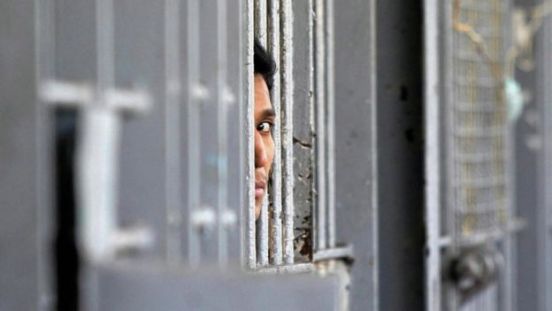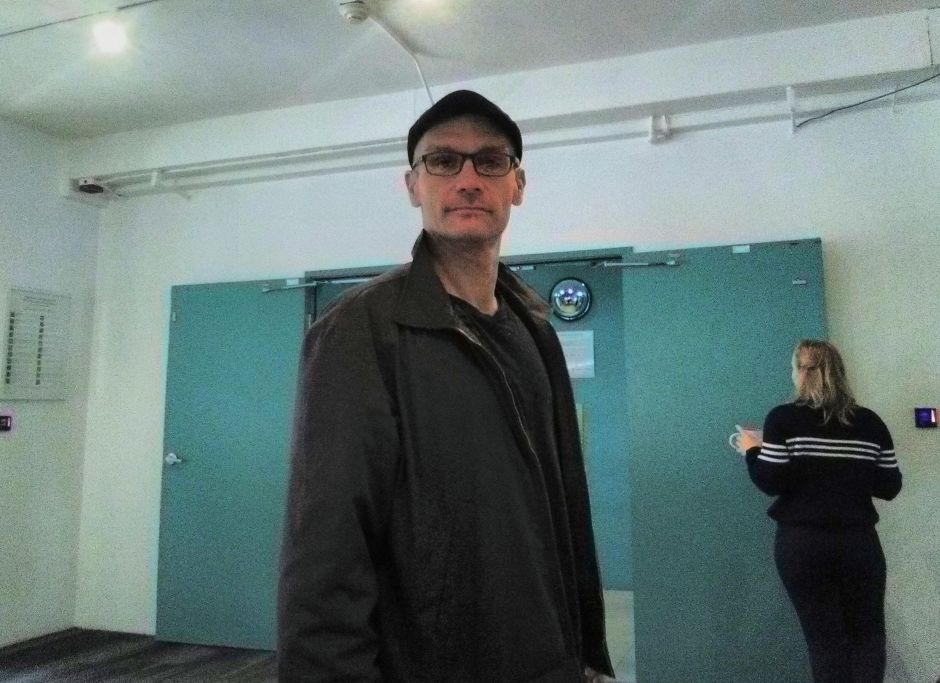Young spent years in a cycle of entering and leaving the prison for not being diagnosed clinically, or having a program that gave him a second chance.
20 years ago Riley Gude began sleeping in well-known armchairs, a small garage and any other place that family and friends could temporarily offer her. However, no one could help him get out of that "laziness" that prevented him from getting ahead and getting his own place to live.
This lack of interest eventually led to Gude ending up sleeping in the streets and under the bridges of Los Angeles.
“What I had was depression, I didn't want to get up and sometimes I thought about dying,” said Gude, 45. “I had not been diagnosed and people think that automatically one only has to overcome that. But depression is something serious. ”
In an eagerness to want to forget his problems, Gude decided to self-medicate, mixing medicines with alcohol.
"For me that was a short-term solution, but I couldn't see that it had long-term consequences."
The prison ignored his illness
Homelessness, drugs and alcohol eventually led Gude to jail. He remembers that he was imprisoned at least 10 times.
"Never for more than six months and for things that sometimes made no sense," he said. Some were for being drunk on the street, or not going to court.
"I also had two serious crimes, but not very serious … I never had drug charges," he continued. “One of them was that I had a knife under my jacket sleeve. But that was necessary for me because I slept in the streets and it is dangerous. ”
Gude remembers that the first times he fell in jail there were never questions about his health.
"Then once they asked me, if I had any health condition and told them I had depression," he added.
This information, instead of helping him, affected him more in the confinement since in an effort to prevent him from getting hurt, his mattress and blanket were removed so that he did not use them as weapons against himself.

"Then for the next time I was locked up and when they asked me if I had any illness I said no," he recalled. "In jail the most important thing you can have is your mattress and your blanket."
This was the case for a few years until 2018, with the help of his sister, the activist and defender of Measure R, Lynne Lyman, Gude managed to obtain a permanent place to live. This, he says, was the greatest support he could have received in all this time.
"I had tried to get out of this situation for several years, but they told me that I first had to focus on the housing situation and then on my mental illness," he said.
The importance of Measure R
Although Gude suffered imprisonment for minor offenses, he does not blame the prison system for not helping him with his mental illness, but considers that the same system did not have the resources to provide the necessary medicine or intervention.
"I was living in the streets, partly because of my mental illness and being in the street, I ended up in jail," Gude said. "I think the help they can offer (to inmates with Measure R) is going to be very important."
Lyman said his brother is a good example of the opportunities that exist when the necessary services are offered.
"Finally he has been stable enough to stop using drugs," Lyman said. "So, this is really about giving people a real second chance and then giving them the tools they need."
Lyman says the county has saved so much money by not having his brother in the cycle of freedom and confinement and this could happen with more than 3,000 people immediately, if Measure R. was passed.
Gude agreed, and said that, although there are "difficult days," he now usually feels happy for his lifestyle and where he lives.
"I have friends, family and people involved to go to if I need help," he says. "Housing has given me a form of stability."
Gude also takes his medications, visits a therapist, a doctor and maintains a part-time job.
"I'm going to start taking some computer classes at (the school) La Trade Tech in February to learn how to use the computer well," he said enthusiastically.








